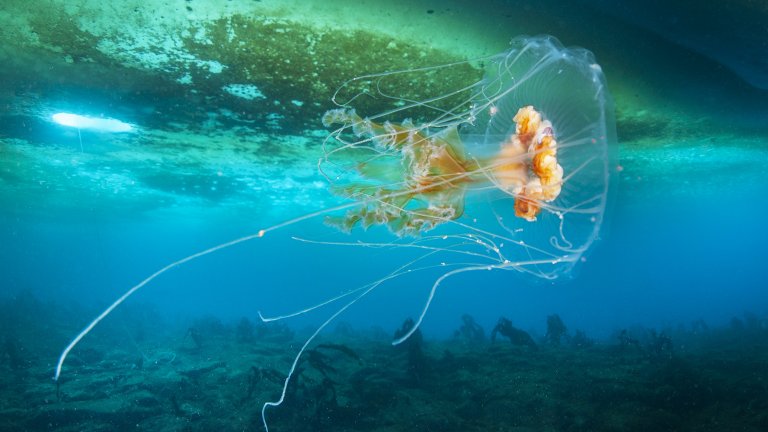
© Erwan Amice / LEMAR / CNRS Images
View the mediaFolder
World Oceans Day is on 8 June. This is an ideal opportunity to admire their incredibly rich biodiversity, but above all to remember that they are now more threatened than ever, with consequences for the entire world.

© Erwan Amice / LEMAR / CNRS Images
View the mediaOver 70% of the Earth's surface is covered by oceans. Magnificent areas of biodiversity that are home to millions of species, they are now facing a number of unprecedented pressures they have never experienced before. Overfishing, various types of pollution, global warming causing the ice to melt and water to rise: this human interference weakens marine ecosystems and causes the ocean to lose its capacity to naturally regulate the climate. A downward spiral which impacts human activities, especially, but not limited to, the growing number of people living near the coast.
Therefore, it has now become more urgent than ever to protect our oceans, and this is where science comes in. The CNRS prides itself on being one of the world's leading ocean and marine research organisations, with thousands of scientists working in all disciplines and in all seas of the world. Recently, the CNRS created GdR Omer, an interdisciplinary research group bringing together thousands of scientists to address the challenges facing the oceans.
The first of these challenges is the preservation of marine biodiversity. In addition to their habitats, the food webs of these animals are threatened. Let's consider, for example, the Adélie penguins in Antarctica, which are finding it increasingly difficult to feed themselves due to changes in the pack ice; or the leatherback sea turtles in French Guiana, whose populations are steadily declining because the beaches where they traditionally lay their eggs are becoming increasingly difficult to access. It is therefore essential to understand how marine animals communicate and find food in order to help them. Similarly, pilot whales are fascinating cetaceans that have retained their sense of taste and smell throughout their evolution.
The other major challenge is to understand the impact of climate change on the oceans, to both try and limit the warming and to mitigate its impact on seas and coastlines. Oceans are carbon sinks that capture some of the ten billion tonnes of carbon dioxide released into the atmosphere each year by human activities. But these natural sinks are also threatened by climate change, and it is important to protect them.
On the coastlines, erosion is the main threat. Nearly 30% of the French coastline is being eroded, and these areas are becoming increasingly vulnerable, which raises many scientific and societal questions. Researchers are therefore working hard to better understand the mechanisms that influence the changing coastline and to limit the damage as much as possible.
Finally, you can find our feature article on plastic pollution in the oceans, one of the greatest environmental tragedies of recent decades: https://images.cnrs.fr/en/reportage-photo/rep000719.
For this year's World Ocean Day, we invite you to explore all of these topics, and many more through a selection of photo and video reports that we have made for you.
Our work is guided by the way scientists question the world around them and we translate their research into images to help people to understand the world better and to awaken their curiosity and wonderment.